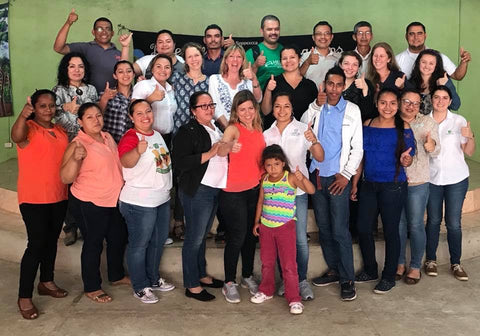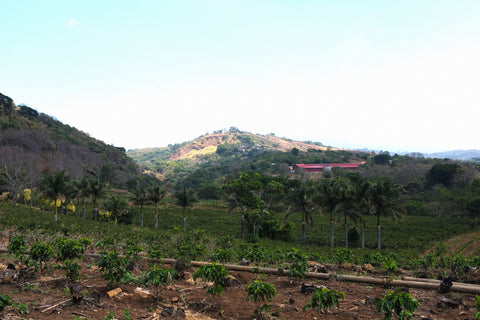The United States is in the midst of an exciting (and long overdue) movement of women speaking out about inequalities and against sexual harassment, which has led to meaningful and thoughtful conversations among friends and colleagues, and in many cases, dramatic action to resolve long overlooked problems. I do not think that we, as coffee roasters are excluded from that discussion. As a woman in the workplace, my wish is to help create a safe workplace environment free from discrimination, and speak up whenever inequalities arise. As a woman in the specialty coffee industry, my wish is to be an advocate for gender equity throughout the coffee supply chain, especially for people like my friend Mayela, Farm Manager at Finca San Jose, who is breaking Nicaraguan cultural norms by holding a leadership role traditionally only available to men.
Gender inequities are more prevalent in coffee-producing countries where societal norms are more patriarchal. Women are often in positions where they do a majority of the work that effects quality and yields, while the men generally perform more managerial duties including transportation, sales negotiation, and operational management. This means that women are often excluded from critical decision making despite the critical role they play throughout every stage of coffee production. It also means that women traditionally earn less for their contribution to coffee production, leaving them without agency despite their hard work.
Blanchard’s Coffee is proud to sponsor Mayela in attending a workshop addressing some of these issues this week in Jinotega, Nicaragua. Partners in Gender Equity (genderincoffee.org) is collaborating with SOPPEXCCA (www.soppexcca.org/en/), and the Coffee Quality Institute (coffeeinstitute.org/) by hosting a two day workshop exploring findings from a field study conducted at farm level promoting gender equity between workers and heads of households. Gender equity is the process of treating women and men fairly, taking into consideration the different needs of women and men and includes measures to address women’s historical and social disadvantages. Gender equity is a means to achieve gender equality. Participants of the workshop will have an opportunity to learn firsthand about recognizing inequalities that exist within their community and what they can do about it. Partners in Gender Equity believes that greater equity can be achieved when all three levels of the market chain are working together - the coffee farming households, the coffee producers, and the end market.

Finca San Jose’s farm manager, 23 year old Mayela Reyes, is in a unique position to truly affect change at the farm and community level as a young woman holding a leadership position traditionally held by a man. Implementing the principles of gender equity is a commitment to improve gender relations and acknowledging the equally important role men and women play in all aspects of the coffee industry. My goal is to continue to encourage Mayela and other women in that community to be confident in their roles and the future of their positions on the farm. By learning about these tools and methodologies, Mayela will gain valuable insights into gender equity and inequities that impact the wellbeing of her community and what she can do to create real change within the rural community of Nicaragua.
--Tamara South






